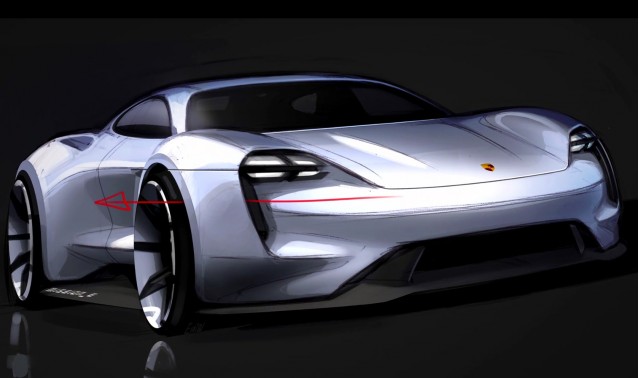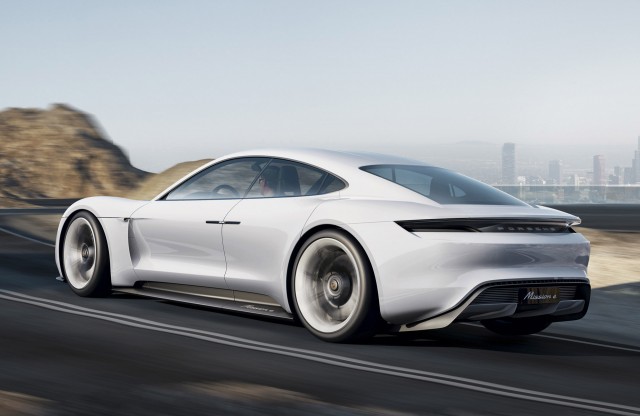The Porsche Mission E that debuted at the 2015 Frankfurt Motor Show isn't just another concept car.
It previews a production electric car Porsche plans to launch before the end of the decade.
Just like its powertrain, the Mission E's styling is quite different from that of today's Porsche production cars.
That was intentional, in order to make a statement about the car's electric powertrain, say some of the designers in a short video released by Porsche that explains some of the design process.
Like all new car designs, the Mission E started out as a series of sketches, and gradually gestated through scale models into the full-size concept unveiled in Frankfurt.
That car used powertrain components from the Porsche Boxster E to make it driveable, although likely only for the short distances that are typically demanded of concept cars.

Porsche Mission E Design
Porsche built a handful of Boxster E prototypes in 2011 to test electric powertrain components, but these were never available to the public.
The Boxster E components stood in for the actual Mission E powertrain, which produces 600 horsepower, according to Porsche.
It includes an electric motor for each axle, plus a lithium-ion battery pack of unspecified size that allows for a 310-mile range on the European testing cycle.
The European cycle is notoriously optimistic, so figure a 20 to 25-percent reduction on the U.S. EPA cycle.
An electric powertrain had some advantages in terms of styling, the designers said.
Because there is no engine in front, they were able to make the Mission E's front end very low, and didn't need to accommodate large air intakes.

Porsche Mission E concept, 2015 Frankfurt Auto Show
The car does have two vertical gutters below the headlights, which are part of an "air curtain" that channels air around the front wheels.
This helps lower drag, and a less-elaborate arrangement is even used on the Ford F-150 pickup truck.
In another nod to aerodynamics, the Mission E does away with protruding exterior mirrors, replacing them with cameras.
The four-seat Mission E also features rear-hinged "carriage doors" that designers claim allow easier access to the rear seats.
Those doors and the camera system may not make it to production, but the Mission E itself will.
Porsche confirmed in December that a production version is coming within three to five years, and announced plans to expand its main assembly plant in Zuffenhausen, Germany, to make that happen.



No comments:
Post a Comment